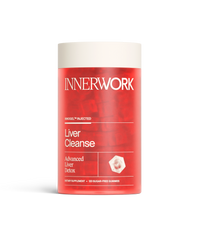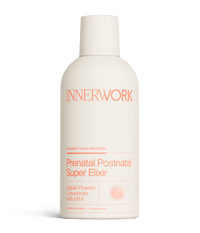Understanding stress goes beyond the fight-or-flight response. Not all stress is harmful; eustress, or positive stress, can enhance performance and motivation when managed correctly. Reframing stressful situations as challenges rather than threats can potentially turn anxiety into excitement. Additionally, the tend-and-befriend response, more common in women, involves seeking and providing support during stress. Cultivating a support network and engaging in caregiving activities can activate this beneficial stress response.
Several innovative techniques can effectively manage stress. Heart Rate Variability (HRV) training, which involves practicing slow, rhythmic breathing while monitoring HRV, can improve physiological responses to stress. Flotation therapy, also known as sensory deprivation, can reduce cortisol levels, alleviate anxiety, and improve sleep quality. Forest bathing, or Shinrin-Yoku, involves immersing oneself in nature using all senses, benefiting from phytoncides released by trees to boost the immune system and reduce stress hormones.
Neurofeedback trains the brain towards more balanced states, helping regulate the stress response and enhance emotional regulation. Adaptogens, herbs and mushrooms that help the body resist various stressors, can build resilience to stress over time when incorporated into daily routines under professional guidance. The Emotional Freedom Technique (EFT), or tapping, combines cognitive restructuring with acupressure to alleviate stress and negative emotions. Cold water therapy can activate the body's stress-adaptation response in a controlled manner, improving circulation, boosting mood, and enhancing overall stress resilience.
Technology can play a valuable role in stress management. Advanced wearables can track stress levels through metrics like HRV, skin conductance, and sleep patterns, helping identify stress triggers and patterns. Virtual Reality (VR) meditation can create immersive, calming environments, particularly helpful for those who struggle with traditional meditation practices.
Crafting a personalized stress management strategy is crucial, as effective stress management is not one-size-fits-all. Consistency is key, and incorporating even one or two of these techniques into daily life can lead to significant improvements in stress levels over time. As with any new health practice, it's advisable to consult with a healthcare professional, especially when considering adaptogens or significant lifestyle changes.
By embracing these cutting-edge approaches to stress management, one can not only reduce the negative impacts of stress but also harness its potential benefits, leading to a more balanced, resilient, and fulfilling life. The journey to effective stress management is ongoing, but with these innovative tools and techniques, a calmer, more centered life is within reach.
References:
[1] Crum, A. J., Salovey, P., & Achor, S. (2013). Rethinking stress: The role of mindsets in determining the stress response. Journal of Personality and Social Psychology, 104(4), 716-733.
[2] Taylor, S. E., Klein, L. C., Lewis, B. P., Gruenewald, T. L., Gurung, R. A., & Updegraff, J. A. (2000). Biobehavioral responses to stress in females: tend-and-befriend, not fight-or-flight. Psychological Review, 107(3), 411-429.
[3] Lehrer, P. M., & Gevirtz, R. (2014). Heart rate variability biofeedback: how and why does it work? Frontiers in Psychology, 5, 756.
[4] Feinstein, J. S., Khalsa, S. S., Yeh, H. W., Wohlrab, C., Simmons, W. K., Stein, M. B., & Paulus, M. P. (2018). Examining the short-term anxiolytic and antidepressant effect of Floatation-REST. PloS One, 13(2), e0190292.
[5] Li, Q. (2010). Effect of forest bathing trips on human immune function. Environmental Health and Preventive Medicine, 15(1), 9-17.
[6] Marzbani, H., Marateb, H. R., & Mansourian, M. (2016). Neurofeedback: A Comprehensive Review on System Design, Methodology and Clinical Applications. Basic and Clinical Neuroscience, 7(2), 143-158.
[7] Panossian, A., & Wikman, G. (2010). Effects of Adaptogens on the Central Nervous System and the Molecular Mechanisms Associated with Their Stress—Protective Activity. Pharmaceuticals, 3(1), 188-224.
[8] Church, D., Yount, G., & Brooks, A. J. (2012). The Effect of Emotional Freedom Techniques on Stress Biochemistry: A Randomized Controlled Trial. The Journal of Nervous and Mental Disease, 200(10), 891-896.
[9] Mooventhan, A., & Nivethitha, L. (2014). Scientific Evidence-Based Effects of Hydrotherapy on Various Systems of the Body. North American Journal of Medical Sciences, 6(5), 199-209.
[10] Peake, J. M., Kerr, G., & Sullivan, J. P. (2018). A Critical Review of Consumer Wearables, Mobile Applications, and Equipment for Providing Biofeedback, Monitoring Stress, and Sleep in Physically Active Populations. Frontiers in Physiology, 9, 743.
[11] Navarro-Haro, M. V., López-del-Hoyo, Y., Campos, D., Linehan, M. M., Hoffman, H. G., García-Palacios, A., Modrego-Alarcón, M., Borao, L., & García-Campayo, J. (2017). Meditation experts try Virtual Reality Mindfulness: A pilot study evaluation of the feasibility and acceptability of Virtual Reality to facilitate mindfulness practice in people attending a Mindfulness conference. PloS One, 12(11), e0187777.







